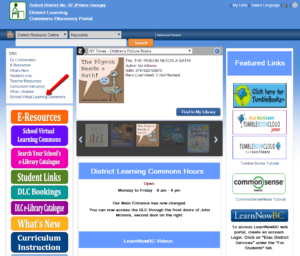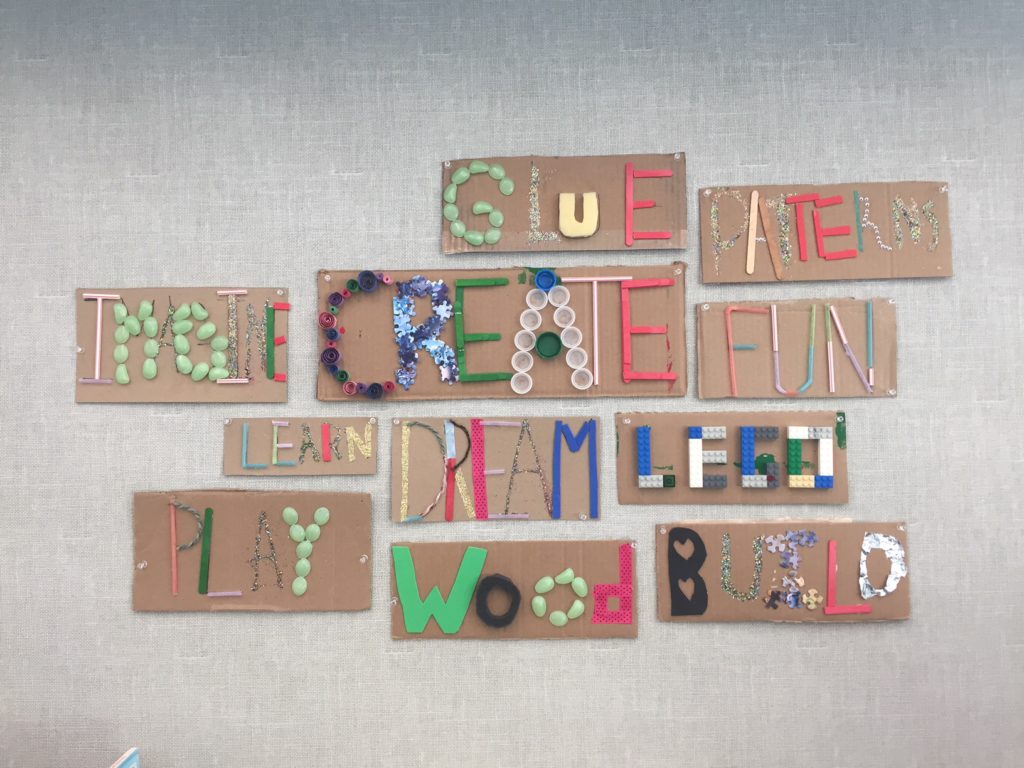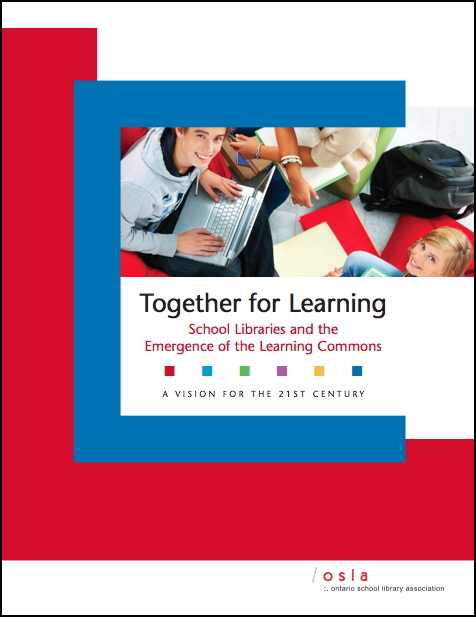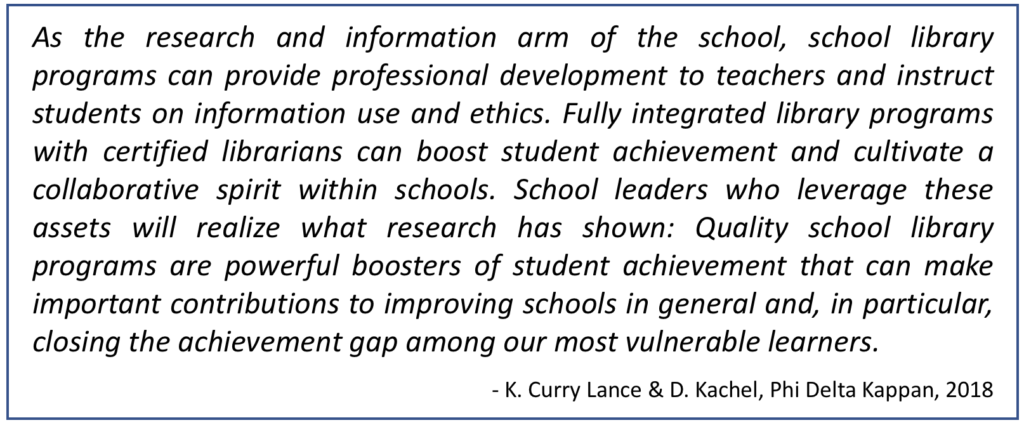Leading the Way with the Library Learning Commons
Examples of administrative leadership to transform school libraries in Canada to 21st century learning commons centres
Developing a Plan: Planning should be linked to district goals and mission. Superintendent Tom D’Amico of Ottawa Catholic District School Board (OCDSB) laid out a district-wide plan and supported schools in their transitions (D’Amico, 2011). Just five years later the OCDSB received the Canadian Education Association (CEA) Innovation that Sticks award, in part for recognition of transformations of libraries to learning commons. “With the conversion of libraries to Learning Commons, increasing broadband, universal wi-fi availability and equitable Bring-Your-Own-Device (BYOD) policies, the OCDSB has created a digital learning ecosystem focusing on collaboration, creativity and critical thinking among all of its 83 schools.”

Creating Mindset: We can get hung up on the money when it comes to learning commons spaces. But it is first about mindsets – we need to embrace new ways of learning and find ways for our space to reflect these changes and be the gathering places for our all our learners. The thinking around the learning commons is symbolizing the shifts we are seeing with learning throughout our schools. The Learning Commons Mindset: Chris Kennedy Superintendent of Schools / CEO with the West Vancouver School District.
Establishing a Vision and Taking Action: Take, for example British Columbia’s School District #57 Building a District Learning Commons Vision Statement: “We are collectively combining our creativity, knowledge, and expertise to create a library learning commons to meet the diverse needs of all learners.” With the vision clearly stated at the district level, it became incumbent upon the stakeholders to implement this initiative. A first step, to transition the District Resource Center to the District Learning Commons, set the climate for experimentation and collaboration focused on student learning.

Starting a Shift: When school improvement is centered on the needs of student learning and well-being and owned by each learning community then change happens. The Durham District School Board (DDSB) in Ontario has invested in transforming learning spaces to shift the focus on learning.
Creating Collaborative Dynamics: “The Learning Commons is a real world whole school approach to creating such a new collaborative learning model. In joining the collaborative dynamics of the school library with technology-rich labs and expertise and providing a seamless portal of flexible physical and virtual learning resources and spaces. Top that with relevant participatory learning experiences and students will be energized to make meaningful connections and develop strategies for successful learning.” (Gino Bondi, Assistant Superintendent, Abbotsford BC School District, 2011).

Implementing Policy: School libraries across Alberta are busy shifting into learning common environments. In 2014 Alberta Education introduced a policy mandating schools to adopt the learning commons model. In the Alberta Guide to Education ECS to Grade 12, 2017-2018, it states, “The concept of a learning commons is a shift in thinking from a library as a physical space that is a repository of books, to an inclusive, flexible, learner-centred, physical and/or virtual space for collaboration, inquiry, imagination and play to expand and deepen learning.” See how the Calgary Catholic School District is implementing this policy.

Providing District-Wide Support: Central instructional leadership provides a consistent vision and implementation across a school district. The Toronto District School Board (TDSB) provides guidelines for developing effective teaching and learning program practice for school library learning commons. The TDSB also provides 24/7 access to excellent learning resources and central learning supports through its Virtual Library.
Working with Provincial Consultants to Advance School Library Learning Commons: The Québec School Librarians Network (QSLiN) is a consulting group supporting English schools across Quebec in both the public and private sectors. “Our mandate is to INFORM, EXCHANGE, CONSULT and DEVELOP. Our mission is to advocate for the revitalization of school libraries as learning commons, to promote literacy, information literacy skills, and digital citizenship throughout the K-11 curriculum across Quebec and assist in the education and professional development of educators, school library personnel, and students.”

Principals as Leaders: “At the school level, the principal is key in establishing and encouraging working partnerships among staff and students. The principal must provide the climate for co-operation, experimentation and growth. The Learning Commons has great potential, but only when everyone participates.” Together for Learning (Ontario School Library Association, 2010, p. 40). This chart makes connections between the Ontario Ministry of Education’s Leadership Framework and how the learning commons approach described in Together for Learning builds leadership capacity.

